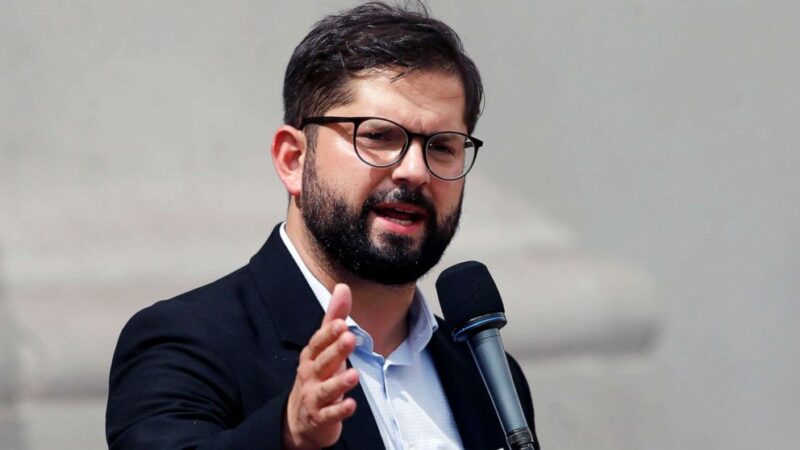
Chilean President Gabriel Boric has announced the country’s decision to support South Africa’s lawsuit against Israel at the International Court of Justice (ICJ) in The Hague.
In a speech that lasted over two-and-a-half hours before the National Congress in Valparaiso, Boric declared that Chile would join South Africa’s case against Israel under the UN Genocide Convention. He emphasized, “I have instructed the Ministry of Foreign Affairs to prepare a brief with our arguments.”
Criticism of Israel’s actions in Gaza has intensified, especially since operations focused on Rafah. This week, three European countries recognized a Palestinian state, and another international court’s chief prosecutor requested arrest warrants for Israeli and Hamas leaders.
Israeli Prime Minister Benjamin Netanyahu faces domestic pressure to end the conflict, which began when Hamas militants attacked Israel, killing 1,200 people and taking around 250 hostages. Demonstrations in Israel are urging the government to negotiate the hostages’ release.
Netanyahu’s administration responded to the ICJ ruling by rejecting South Africa’s genocide charges as “false, outrageous, and morally repugnant,” maintaining that Israel’s military operations do not target civilians.
The case is possible because both South Africa and Israel are signatories to the UN’s Genocide Convention, allowing the ICJ to resolve disputes.
While the ruling impacts Israel’s international standing, the ICJ lacks enforcement power. Israel has also defied a previous ICJ order regarding Ukraine.
The ICJ ruling mandates Israel to halt its Rafah offensive, grant access to war crimes investigators, and significantly increase humanitarian aid to Gaza, where famine is reported.
Rafah, a critical aid crossing on the Egypt-Gaza border, has seen a massive influx of refugees. Despite warnings, Israel began operations there, prompting evacuations. Aid flow has decreased since the incursion began.
The court ordered the Rafah crossing to remain open, labeling the humanitarian situation as disastrous. Human rights lawyer Reed Brody noted the ruling’s stringent demands on Israel.
READ ALSO: IGP Byakagaba suspends NUP rallies after three people die in procession
However, Benny Gantz, a member of Netanyahu’s war cabinet, indicated Israel’s commitment to its operations in Rafah, emphasizing adherence to international law.
Human Rights Watch’s Balkees Jarrah stressed that the ICJ ruling’s effectiveness depends on international pressure on Israel, including arms embargoes and sanctions.
The ICJ president read the ruling amid pro-Palestinian protests. The decision underscored the urgent need to halt the Rafah offensive to prevent further destruction of the Palestinian population but did not call for a complete Gaza cease-fire as South Africa requested.
South Africa’s foreign minister expressed satisfaction with the ruling and emphasized the need for UN Security Council action to protect Palestinians. The lawsuit accuses Israel of genocide, which Israel denies. The case is expected to take years, with interim orders sought to protect Palestinians.
The ICJ has mandated Israel to facilitate UN investigative missions into genocide allegations. South Africa’s ambassador to the Netherlands urged the ICJ to order Israel’s withdrawal from Gaza. The court had previously found Israel’s actions posed a significant risk to Palestinians.
Gaza’s Health Ministry reported over 35,000 Palestinian deaths due to the Israeli offensive, which has devastated neighborhoods and displaced hundreds of thousands.
In January, the ICJ ordered Israel to prevent acts of genocide in Gaza, and a subsequent March order called for humanitarian improvements.
The ICJ adjudicates disputes between nations, while the International Criminal Court (ICC) prosecutes individuals for war crimes, crimes against humanity, and genocide. Recently, the ICC’s chief prosecutor sought arrest warrants for Netanyahu, Defense Minister Yoav Gallant, and Hamas leaders for crimes in Gaza and Israel.

